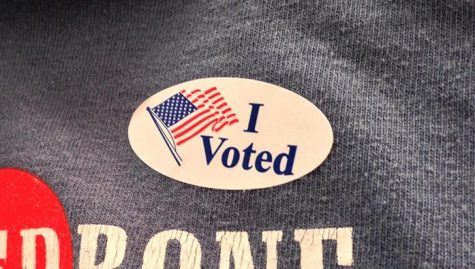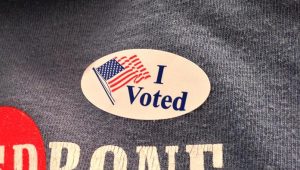Hegde: What’s in a name?
A name is the most basic aspect of a person, which makes it all the more of a conflict when people shunt a ‘difficult’ name to the side.
October 17, 2018
A name is the most basic part of an identity. Everything has a name, from your shoes to your favorite houseplant. That being said, to have a name that is considered “difficult” can have a large impact on a person’s life.
Possessing a name that is considered hard to pronounce myself, I have grown up feeling anxious at the most trivial of situations, from roll call during attendance to introducing myself to a new person. Suchaeta Hegde, after all, is not a name that is commonly found in suburban Iowa.
While I have met many compassionate people who made sure to learn my name properly, the number of times I have gotten the response of “I probably won’t remember that” is disconcerting. A person’s name is too important to brush off or pretend to know; a more persistent effort needs to be taken to acknowledge names that are harder to pronounce.
Personally, I always try to make an effort to learn a new person’s name, because I know the struggle of my name being glazed over and feeling a sense of isolation because of that. To be clear, I would much rather tell a person my name numerous times over someone avoiding my name altogether.
RELATED: Zine scene: giving voice to any and all artists
To see whether those around me felt in a similar way, I posed these questions on a Facebook survey that I shared on various platforms.
Of 73 responses, 87.7 percent of people agreed that they would much rather have people ask for the pronunciation of their name than avoid saying their name altogether. As intimidating as it may seem on the other side of the conversation, when someone makes the effort to learn my name, I feel that this person truly wants to get to know me, regardless of the number of attempts.
If they did not know someone’s name, 67.1 percent of the sample said that they would ask the person to repeat the name. Alternatively, 11 percent would try to pronounce the person’s name, and 12.3 percent of people admitted that they would pretend to know a name they were unsure about. What many often don’t realize about pretending is that, after years of dealing with a spectrum of reactions to their name, people often can see right through those who don’t know how to say their name. When a person responds to an introduction with a nod and an “OK,” it is usually a clear sign that they are completely clueless, making it all the more hurtful that no effort was put forward.
I was surprised to find that so many people had feelings about the issue — more than 60 people discussed how they felt about their name being difficult and how to combat the problem of names being shunted aside.
While some were accepting of the situation and said that it depended on the context, others revealed the complexities of feeling misidentified. Nidhi Patel, a senior at the University of Iowa, described how people mispronouncing her name over the years had affected her. “It makes me feel slightly less important,” she said. “I am actually happy to [correct people] because it shows me that a person actually cares to take time and get my name right.”
An anonymous response encouraged people to take “10 seconds of effort” and described how that time “really makes a difference to a person, especially someone who feels erased in other aspects of their lives due to their identity.” In both cases, and the majority of the responses, the simplest solution to the problem is simply to try.




















